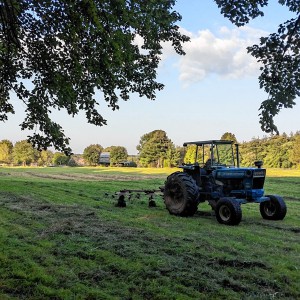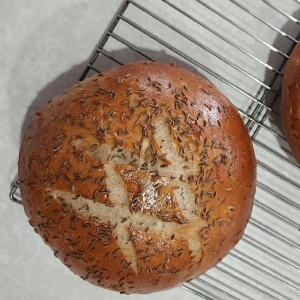Local obsession: At Sevenstrong Restaurant in Northampton, Pioneer Valley cuisine is the genuine article
| Published: 01-06-2017 2:51 PM |
To say that Sevenstrong serves local food would be a serious understatement. The recipes designed by executive chef Jonathan Adler are local to the point of obsessiveness. Adler and his general manager Sébastien Piekutowski, who co-own the Northampton restaurant, are committed to buying whole animals from local farms. They do all of their own butchery in-house. You won’t find lemon or lime in any of the dishes or drinks here. No peanuts, either. Not even black pepper.
“We literally only buy our produce from local farms,” Adler says. Plenty of restaurants use the phrases ‘local’ and ‘farm to table,’ but “those are just catchphrases.” Sevenstrong, which opened in September, does not use any major food purveyors, Adler explains. “We don’t use giant trucks to bring our food in. Literally everything comes from Western Massachusetts. I personally know all the farmers. And we do this all year round.”
What Adler is doing is not innovative, per se. This approach to food exists in plenty of other commercial kitchens. It’s just that those kitchens tend to be in some of the most renowned restaurants in the world — and that food carries higher prices. A large entree at Sevenstrong may cost between $23 and $37 and include dishes such as blue hubbard squash, flat iron steak, pork roulade. Most of the dozen or so rotating tapas-style small plates are priced under $15. Among them: grilled bok choy, pig skin chicharron, salt baked shallots.
The restaurant certainly feels less stuffy than its top-tier counterparts. It’s homey and inviting in an organic way, with lots of live-edge and reclaimed wood. The kitchen is open, with about seven staff members in impeccable white uniforms conscientiously assembling the evening’s dishes, which change on a daily basis.
Adler and Piekutowski consider themselves food activists of sorts, and they’re on a bold mission to introduce dining experiences that have been reserved for the very wealthy to the entire Pioneer Valley. As Adler puts it: “We didn’t want white tablecloths.”
Article continues after...
Yesterday's Most Read Articles
Piekutowski refers to this endeavor as a “democratization of food.” He has traveled the world — first as the child of humanitarian aid workers, and then as a hospitality consultant for high-end resorts — and he says it has shaped him as a person. When he lived in Montreal, he worked in a champagne bar that served high-quality champagnes to diners on a budget.
He brought his experience to the ConVino wine bar in Northampton before striking out with Adler on the Sevenstrong venture.
Adler, an East Longmeadow native, moved to New York City at the age of 21 to make a name for himself in the industry, working as a sous chef at The Breslin, a Michelin-star rated restaurant where he was put in charge of the butchery and charcuterie program. Later, he worked at the San Francisco restaurant Saison.
But Adler was drawn to western Massachusetts. The idea for Sevenstrong was to establish a restaurant that would bolster what he and Piekutowski saw as a burgeoning local food movement — one with lots of potential, and with every ingredient locally produced.
That’s a challenge in a region where food production is so seasonal. But Adler has an almost monastic studiousness about him. Instead of black pepper, he makes a dried cucumber powder that tastes remarkably similar. Past dishes have included ingredients like Japanese knotweed, an introduced plant in the buckwheat family that’s considered a nuisance in most of New England. It’s often likened to rhubarb in its flavor.
Adler seems a man obsessed with the finest details of food preparation and preservation. When we asked him for a sample recipe, he submitted a four-page document that branched outward to include instructions on how to make each ingredient in the dish from scratch, including cheese and cured beef.
Adler thinks of himself as a skilled worker, like a carpenter. But the dishes he prepares are painstakingly prepared and presented, and each looks like a work of art.
“Jon is driven to a fault, sometimes, because his personal health will take secondary priority over the establishment,” Piekutowski says. “But this place was built for one sole reason, and that was to be the best vehicle for his food and for the work of his team.”
“Everything that is used here can be found at any farmers market,” Piekutowski adds. “There are a lot of ingredients that we find here very easily but perhaps that people don’t know, but it’s not because it’s anything exclusive or rare that we flew in from wherever.”
Outside, above the new “Sevenstrong” sign on Strong Avenue, hangs a small sign that says “Ibiza Tapas,” the name of the previous restaurant in this space. This is because of a bureaucratic hiccup involved with the transfer of the liquor license. But it is also a testament to the frenzied speed with which Adler, Piekutowski, and Benson Hyde — the owner of the Northampton specialty food store Provisions — made the deal, remodeled the entire restaurant, and reopened.
Adler and Piekutowski look back on that eight-week period with both pride and gratitude. “A lot of work has been put into every aspect of the renovations,” Piekutowski says. Most of the 10-plus volunteers working with them last summer, he adds, are now part of the staff.
Beneath the dining room floor lies “the beating heart of the restaurant,” as Pietukowski puts it. It is a labyrinthine array of shelves lined with neatly labeled jars of preserved food — fermented radishes, shitake mushrooms, carrot tops, radish greens. To give a sense of how comprehensive the restaurant plan is: Adler and Piekutowski are cultivating particular species of fungus from spore prints for use in their fermentation processes.
This is not an easy thing to do at home. Adler seems to have a scientist’s mind when it comes to food prep. If it all seems very complex, it’s because it is. And though he’s good at managing it, it’s not the complexity that draws Adler to this kind of cooking.
“It’s more an interest in exploring what can be done with what is on hand,” he says. “By limiting ourselves to the ingredients that are just in the small radius of western Mass, it opens us up to the possibility of being creative and eliminating waste.”
That’s what makes the Sevenstrong’s mission are simple as its recipes are complex. “When people ask me what kind of food we’re doing,” Adler says, “The only thing I can tell them is that we’re doing Pioneer Valley cuisine … There’s nowhere else in the world that we can specifically do this kind of food.”

 Valley Bounty: Grass-fed animals that feed the grass: Gwydyr Farm in Southampton focuses on ‘restoring the connection between land, food and people’
Valley Bounty: Grass-fed animals that feed the grass: Gwydyr Farm in Southampton focuses on ‘restoring the connection between land, food and people’ Weekly Food Photo Contest: This week’s winner: Mary Chicoine of Easthampton
Weekly Food Photo Contest: This week’s winner: Mary Chicoine of Easthampton  Speaking of Nature: A romantic evening for two birders — To hear the wonderful sounds of the Saw-whet Owl one must go outside at night
Speaking of Nature: A romantic evening for two birders — To hear the wonderful sounds of the Saw-whet Owl one must go outside at night Speaking of Nature: Where have all the birds gone?: They’re there, and here’s a handy tool to keep track of their appearances
Speaking of Nature: Where have all the birds gone?: They’re there, and here’s a handy tool to keep track of their appearances
